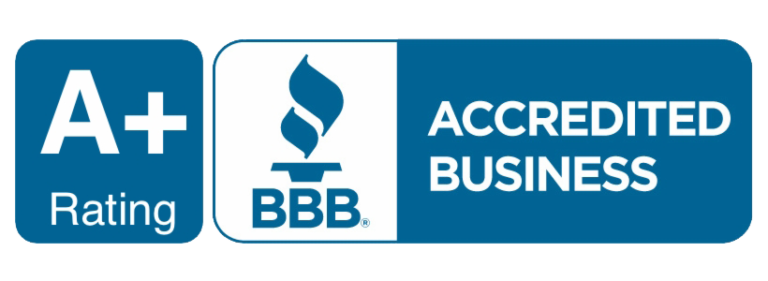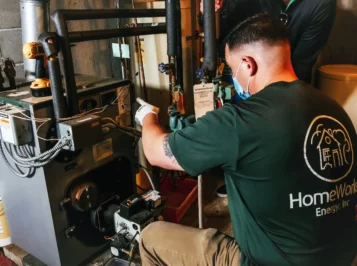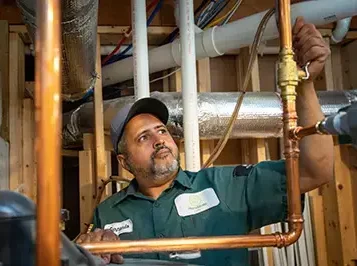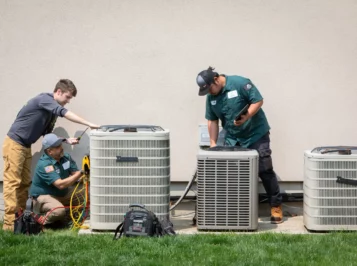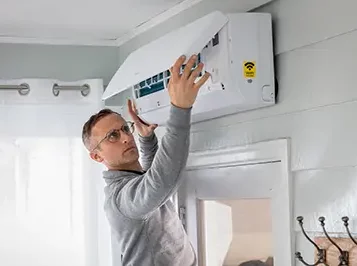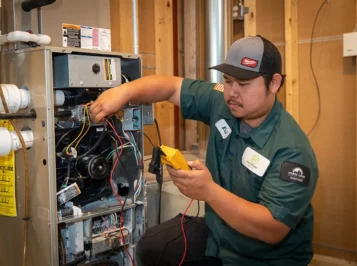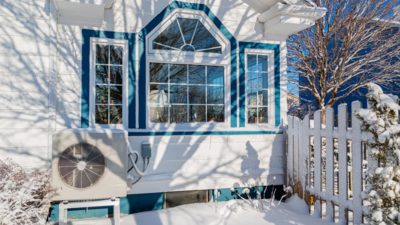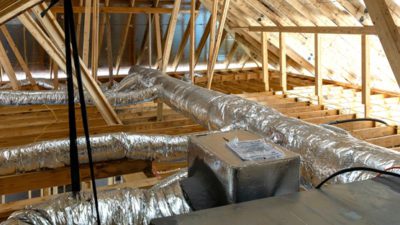Hot water heaters can be one of the biggest energy consumers in your home. They are responsible for heating water used for showering, washing dishes, and doing laundry. Lowering your utility bill doesn’t necessarily require you to avoid using your air conditioner or limit the length of your showers each morning. While those measures will help, there also are simpler ways that you can save energy and money. One simple trick to lower your energy costs is to turn down the temperature on your hot water heater.
In this blog, we will discuss the effects of different water heater temperatures on your utility bill and how HomeWorks can help you identify ways to lower your utility bills and install an efficient hot water tank.

How Much Do Hot Water Heaters Affect Energy Bills?
Your hot water heater accounts for nearly 20% of your entire energy bill. If your water temperature is set too high, you not only risk a significantly higher utility bill, but you run the risk of getting scalded when you use the hot water. If the temperature is too low, you run the risk of bacteria growing in your tank.
What Is the Recommended Temperature for a Water Tank?
The best or optimal temperature for your hot water tank is 120°F (48°C). This is a temperature that is comfortable and sanitary, yet does not significantly increase your energy costs. While this is the best or optimal temperature for your water tank, it’s not the temperature that is set upon installation. Most hot water heaters are factory set at 140°F.
Services We Provide in Massachusetts
How Much Can I Save per Month on Utility Bills by Turning Down the Water Tank Temperature?
Upon hearing that turning down the hot water tank about 20 degrees will result in lower energy costs, most people then ask just how much energy they will be saving by taking this extra measure. The amount of energy saved depends on usage habits and household size.
“In Massachusetts and New England, the average monthly bill is $116.97, according to the Energy Information Administration – EIA. This means you can save nearly $12/month by using this tip.”
Homeowners will find that by turning down their hot water tank temperature to 120°F (48°C), they can save about 6 to 10 percent on their utility bills. It only takes a couple of minutes to make this adjustment but can provide long-term cost savings.
Is It Safe to Lower Your Hot Water Tank Temperature?
Many homeowners are concerned about the safety of changing their water heater’s settings. Although some argue that 140°F is set for a reason, it’s often more about performance than safety or energy savings.
In reality, lowering the temperature to 120°F is actually safer for most families, especially those with young children. It reduces the risk of scalding and still provides enough heat for a comfortable shower or bath. Sanitary concerns are minimal, as 120°F is still considered safe for home use.
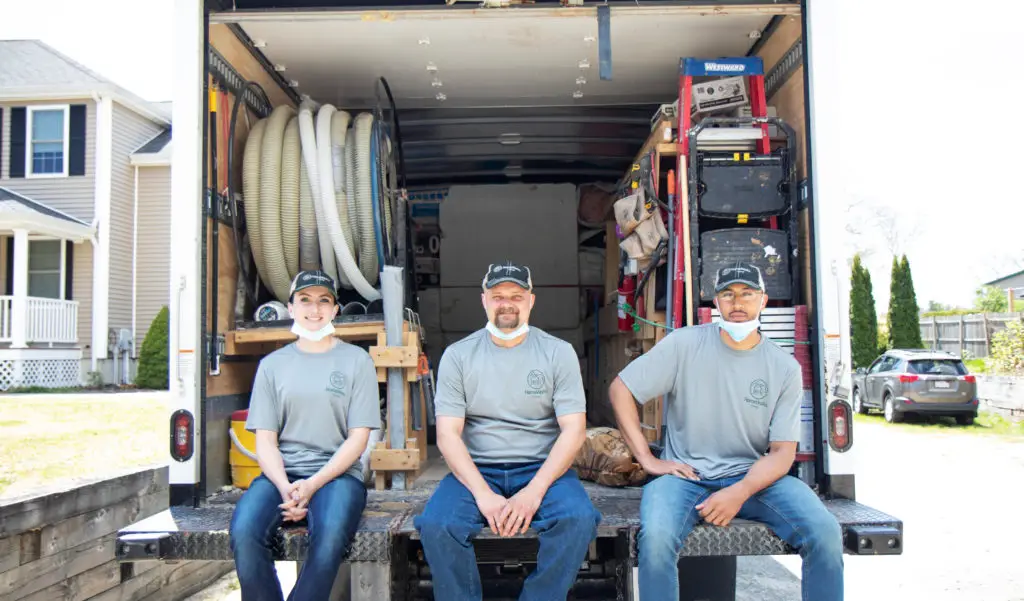
Are Tankless Water Heaters More Energy Efficient?
Those looking to further maximize energy efficiency may want to explore tankless water heaters. These systems heat water on demand, eliminating standby heat loss and reducing water waste. They are also compact, making them great for small spaces.
However, there are some drawbacks:
- They may not support multiple hot water uses simultaneously.
- They can increase electricity usage.
- Installation costs can be higher, and overall savings may be modest.
Schedule a Mass Save Assessment with HomeWorks & Replace Your Hot Water Heater to Save on Monthly Utility Costs
When you make an effort to save energy, the benefits extend beyond your own cost savings. You are contributing to a more sustainable environment. Turning down your hot water heater is just one simple step that makes a difference. At HomeWorks, we are dedicated to helping you save energy and reduce your utility bills. We provide everything from no-cost assessments to water tank replacements across the state. Our team of professionals will work with you to identify areas where energy is being wasted and recommend solutions to help lower your monthly costs. To learn more and get started, call us at 781-305-3319 or submit an online assessment request!

